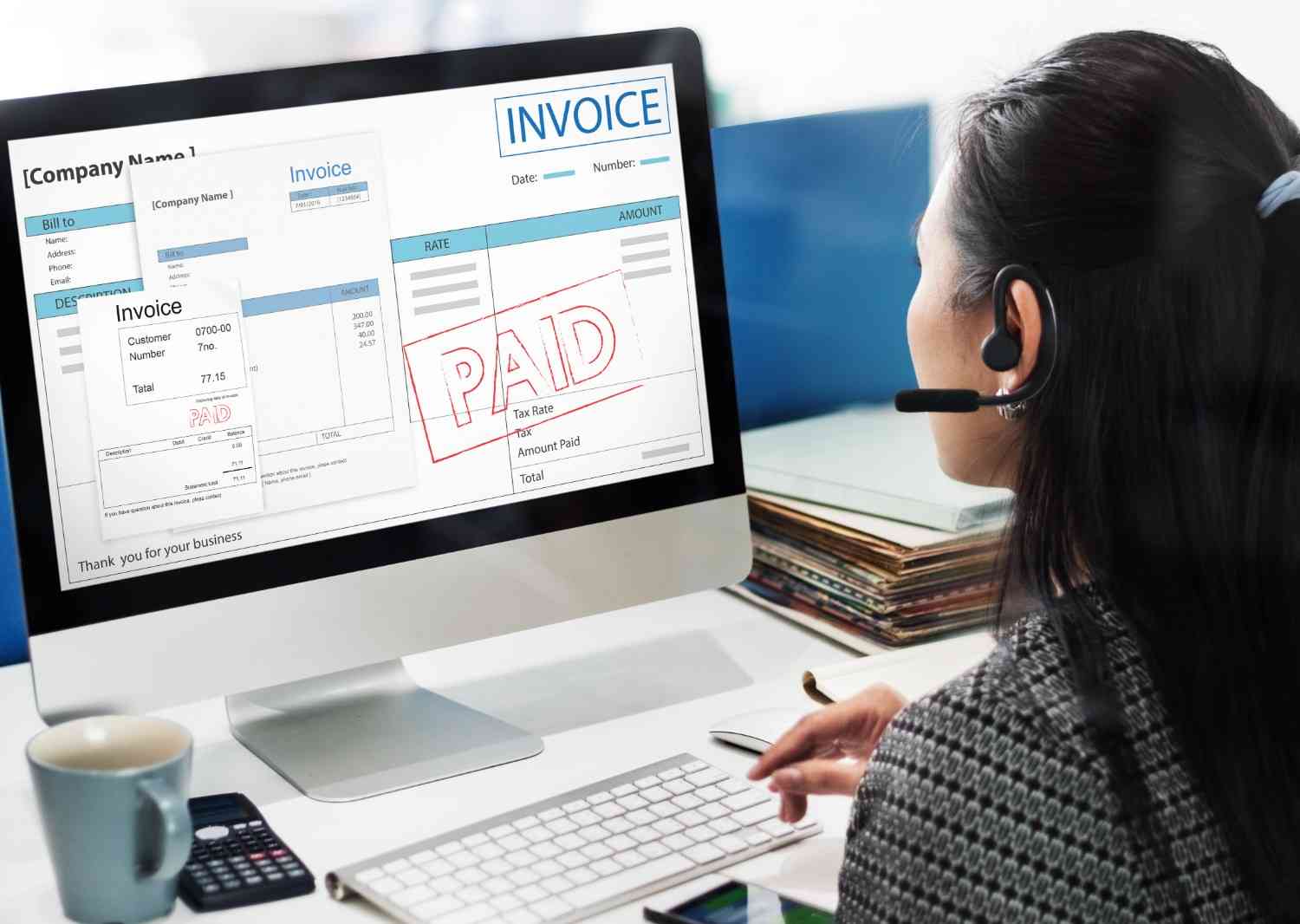Manual invoice management is creating a major roadblock in the UAE’s digital landscape, exposing businesses to operational and regulatory challenges. This method of outdated invoice management can lead to errors, wastage of valuable time, and increases the risk of VAT non-compliance in the UAE. Recognizing the drawbacks of manual invoicing, the UAE has implemented e-invoicing as a strategic move towards digital excellence. The process of E-invocing in the UAE helps to enhance accuracy, reduce compliance costs, and drive the UAE nation to a vision of a smart and paperless economy.
E-invoicing in the UAE is revolutionizing how companies manage invoices, while helping businesses to stay compliant with VAT regulations in the UAE. The UAE Ministry of Finance (MoF) E-invoicing system allows companies to transition from paper and PDF invoices to a digital and structured format. This shift is not about adopting technology- it is about staying compliant, boosting efficiency, and supporting the UAE’s digital economy. Effective July 2026, e-invoicing will be required for all VAT-registered businesses in the UAE.
From this guide, we will explore how e-invoicing works and the benefits for UAE businesses, and how Jaxa Chartered Accountants, a UAE FTA approved tax agent, provides practical compliance tools that support compliance and business growth.
What is E-Invoicing in the UAE?
E-Invoicing in the UAE, effective from 2026, involves generating, transmitting, and storing invoices digitally in a government-approved structured format that adheres to the standards set by the UAE government.
The e-invoicing process in the UAE helps to remove the hassle of paperwork, allowing businesses to generate and submit invoices online quickly and efficiently.
UAE e-invoices need to meet these criteria:
- Digital Format: E-invoices are required to be in structured digital formats.
- Structured Data: E-invoices need to comply with universal structured data protocols, such as the Universal Business Language (UBL) or Peppol invoice format, to meet UAE FTA requirements.
- Peppol Network Exchange: All e-invoices should be exchanged over the Peppol network, ensuring they are transmitted to the UAE FTA’s e-invoicing platform in a consistently standardized, secure, and real-time manner.
- Real-Time Submission: It is required that businesses submit e-invoices to the UAE FTA in real-time, using an Accredited Service Provider (ASP) to ensure accuracy and regulation compliance.
- UAE FTA storage: The Federal Tax Authority securely keeps e-invoices on record, ensuring businesses remain compliant and protected from fraudulent activity.
The UAE adopts the Peppol 5-Corner Model for its e-invoicing system, creating a secure network that connects businesses and the UAE FTA through Accredited Service Providers (ASPs). Partnering with a recognized ASP in the UAE is mandatory to meet e-invoicing compliance requirements.
Reasons Behind the UAE’s E-Invoicing Initiative
- Simplifies VAT compliance in the UAE and minimizes tax fraud
- Reduces administrative burden for UAE businesses
- Supports the UAE’s digital transformation and economic growth
- Improves transparency and efficiency in business operations
Starting in July 2026, eInvoicing will be introduced in a phased manner and will be mandatory for all businesses in the UAE to issue e-invoices. All invoices must be submitted to accredited service providers before issuing and will be integrated into the systems of these service providers to comply with current legislation.
Which UAE Businesses Need to Implement E-Invoicing
- The e-invoicing mandate will cover businesses in the UAE over time.
- The rollout of e-invoicing will be phased, so immediate compliance may not apply to everyone.
- Companies currently under the UAE VAT framework should start preparing for e-invoicing now.
- Some small businesses or exempt entities may not be required to comply immediately.
- All businesses need to plan to meet the mandatory July 2026 deadline.
eInvoicing will be implemented in a phased manner as below:
- A person (business) with turnover of AED 50 million or above – must appoint ASP by July 31, 2026 and implement eInvoicing system by January 01, 2027
- A person (business) with turnover of below AED 50 million – must appoint ASP by March 31, 2027 and implement eInvoicing system by July 01, 2027
Proactive planning today will make the transition to e-invoicing smooth and hassle-free for your business.
For whom is eInvoicing applicable?
Any person carrying on a business or business activity in the UAE (Sole Establishments, Limited Liability Companies, companies in Free Zones etc) are required to comply with the eInvoicing requirements. Only the following business transactions are excluded from the purview of eInvoicing:
- Transactions of Government Entities in a sovereign capacity
- International passenger transportation services provided by an Airline via an Aircraft, where an Electronic Ticket is issued to the passengers
- Any services provided directly to the passengers by an Airline that are ancillary to transportation services
- International transportation services in respect of goods, provided by an Airline
- Financial services that are exempt from VAT or subject to VAT at the zero rate
Apart from the above, the Minister can exclude any other business transactions via issuance of Decisions. Business-to-Consumer (B2C) Transactions shall not be subject to the Electronic Invoicing System for the moment and any Person engaged exclusively in such transactions shall not be subject to the Electronic Invoicing System, until a decision issued by the Minister.
In short all business transactions (except the above) carried out by businesses will be covered under the eInvoicing system.
Advantages of UAE E-Invoicing for Businesses
The shift to digital invoicing offers multiple benefits for businesses operating in the UAE, including:
- Operational Efficiency: Minimizes manual work and accelerates invoice handling.
- Cost Efficiency: Reduces expenditure on paper, printing, and physical storage.
- VAT Compliance: Minimizes errors and meets UAE VAT regulations.
- Fast processing: fast invoice submission increases payment speed and enhances cash flow.
How the UAE E-Invoicing Process Works
In the UAE, e-invoices are transmitted directly from suppliers to buyers, while the UAE FTA gets an immediate copy for compliance and transparency. E-invoicing in the UAE helps UAE businesses reduce errors, save time, and stay VAT-compliant.
Here’s a simple breakdown of the entire process from the supplier to the UAE FTA.
Step 1- Invoice Creation:
An e-invoice is created by the supplier and transmitted to the accredited e-invoicing provider in the UAE using a structured digital format such as JSON.
Step 2: Invoice validation and compliance formatting:
The accredited invoice provider verifies the invoice for any errors and reformats it into the UAE standard PINT AE XML, ensuring compliance with the unified e-invoicing standard.
Step 3: Invoice Delivery & UAE FTA submission:
The accredited invoice provider transmits the validated invoice to the buyer’s accredited service provider, while the Tax Data Document (TDD) is submitted to the UAE FTA.
Step 4: Buyer’s Approval:
The buyer’s accredited service provider reviews the e-invoice and reports the Message Level Status (MLS), indicating whether the invoice is accurate or if any errors exist.
Step 5 – Delivering the Validated Invoice to Buyer:
Once validated, the buyer’s accredited provider delivers the invoice to the buyer in the agreed digital format.
Step 6: Reporting to UAE FTA:
When the invoice is valid, the TDD is submitted to the government system. If the invoice is rejected, only the MLS is sent to the UAE FTA, and the TDD is withheld.
Step 7: UAE FTA review:
The UAE FTA reviews the TDD and returns an MLS confirming successful submission or identifying issues. A corresponding status message is then sent to the buyer’s provider.
Step 8: Supplier Status report:
The supplier receives the Message Level Status (MLS) from both the buyer’s provider and the UAE FTA, updating them on the overall invoice status.
Step 9: Final Status to Buyer:
The buyer receives the final submission status from the UAE FTA through their accredited service provider, marking the completion of the e-invoicing process.
From Paper to Digital: Getting Ready for UAE E-Invoicing
Getting your business ready for UAE e-invoicing doesn’t have to be complex. Here’s how to prepare:
- Stay Updated on UAE E-Invoicing Regulations: Know UAE e-invoicing rules and regulations and formats required, such as XML or JSON, to ensure invoices adhere to UAE FTA
- Plan in Advance: Don’t wait for the deadline; start preparing today to streamline your e-invoicing process in the UAE with accredited service providers.
- Audit your existing software: Conduct a review of ERP, accounting, and invoicing tools to ensure they align with UAE e-invoicing standards and meet UAE VAT reporting standards.
- Partner with UAE E-Invoicing Specialists: For a smooth transition to e-invoicing, it’s best to collaborate with seasoned UAE VAT consultants. Partnering with a UAE VAT consultant and an UAE FTA tax agent provides tailored guidance to help businesses comply with the latest e-invoicing.
- Empower your team: Train and educate your auditing and accounting teams in the UAE regarding the latest tools and ensure a smooth transition process.
Stay Compliant: Avoid UAE E-Invoicing Penalties
- Non-adherence to UAE e-invoicing standards can trigger UAE FTA fines.
- Errors in invoices can result in VAT recovery being rejected and increasing operational costs.
- Trigger an UAE FTA audit and increase the risk of penalties.
Stay UAE FTA-Ready with advisory from Jaxa
E-invoicing in the UAE is a key step towards transforming business finances to meet global digital standards. With the UAE FTA E-invoicing deadline is on the horizon, acting early may ensure seamless compliance, maintain UAE FTA and VAT compliance, and future growth.
At Jaxa, a leading accounting and auditing firm and a UAE FTA-approved tax agent, we simplify your e-invoicing journey. Our licensed VAT consultants in the UAE provide all-in-one solutions to automate accounting tasks, ensure seamless compliance, and help businesses meet regulatory requirements effortlessly.
Having 18+ years of experience and a proven track record, Jaxa Auditors simplifies the e-invoicing process while allowing you to focus on business growth. From receipt management to workflow optimization, Jaxa provides end-to-end e-invoicing solutions in the UAE.
Start your journey toward effortless e-invoicing—schedule your free consultation today.





